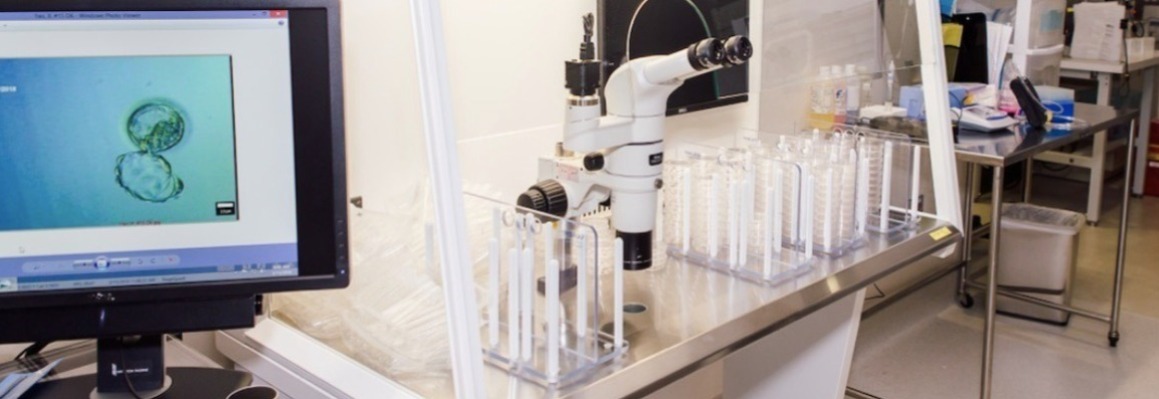Can you select the gender via IVF? Explanation of current regulations
Can you pick baby gender with IVF? Some people may have the following concerns or thoughts: "Our elders want us to have a son to carry on the family name..." or "Daughters seem more adorable, I want to have a girl!" But how is the gender of an embryo determined? Can IVF really guarantee the birth of a boy or a girl? Is it legal to select the gender during the process of IVF treatment? If you also have serious doubts about selecting the gender of an in vitro baby, let this article explain it to you one by one.

Two major techniques for analyzing the gender of embryos in IVF.
Currently, there are two techniques believed to be used for selecting the gender of embryos in IVF treatment: sperm separation and preimplantation genetic testing (PGT-A). However, the understanding that sperm separation can be applied to select the gender of embryos in in vitro fertilization treatment is incorrect. Let me explain it to you in detail below.
XY Sperm Separation Technique
The XY sperm separation technique originated in the field of animal husbandry and was used to increase the birth ratio of a specific gender in livestock. However, this technique has not matured enough to be applied in humans. To be precise, currently, this technique is only in the experimental stage with human subjects and is restricted to cases involving sex-linked genetic diseases.
Furthermore, due to the limited clinical usage, there is a lack of third-party data to prove the effectiveness of the XY sperm separation technique. Additionally, when applied in the field of assisted reproduction, the sperm separation technique is unable to achieve precise separation, meaning it cannot accurately distinguish sperm carrying the X chromosome from those carrying the Y chromosome. Moreover, due to the lack of clinical data, research on the potential health impacts on sperm, embryos, and infants from this technique remains inconclusive and unreliable.
PGS/PGT-A
Preimplantation Genetic Screening (PGS), also known as the third-generation in vitro fertilization (IVF), follows the treatment process: ovarian stimulation ➜ egg retrieval ➜ fertilization ➜ embryo development ➜ PGS genetic screening ➜ embryo transfer ➜ pregnancy. PGS typically involves taking a biopsy on the 5th day of embryo development, where 3-5 cells from the trophectoderm are extracted for testing. This process does not harm the embryo or affect its development.
The purpose of PGS is to screen the chromosomal composition of embryos, identifying any abnormalities and increasing the success rate of IVF, reducing miscarriage rates, and preventing the birth of unhealthy children with chromosomal abnormalities. It is a crucial technique in IVF for older women and serves as a key factor in ensuring success. While selecting the gender of the embryo is an additional benefit, not all countries' laws permit gender selection during the third-generation IVF procedure.

Can you select the gender via IVF? Is gender selection legal in US? Explanation of current regulations
As mentioned above, not every country allows the selection of the gender of embryos during IVF treatment. Taking the United States and Singapore as examples, the United States permits gender selection, but Singapore does not. In most countries, selecting the gender of embryos during IVF treatment is not allowed to avoid potential population gender imbalances.
However, in the United States, it is possible to legally know the gender of the baby while considering the baby's health conditions. Through the use of advanced technology such as Preimplantation Genetic Screening (PGS)/Preimplantation Genetic Testing for Aneuploidy (PGT-A), it is also possible to understand all chromosomes, including the sex chromosomes.
Why is there a need to choose the gender?
Apart from personal preferences, in what situations would there be a need to choose the gender of an embryo? For example, if someone is affected by hereditary diseases such as hemophilia, color blindness, or muscular dystrophy, when selecting embryos for implantation, they may choose a specific gender to eliminate the inherited genetic factors associated with the disease.

Recommended IVF Treatment: RSMC Provides Gender Selection of embryos
At RSMC, located in the United States, PGS technology allows for the selection of embryo gender. The clinic also welcomes same-sex couples and individuals who wish to undergo assisted reproductive technology to have a baby. Additionally, RSMC offers surrogacy services for individuals who are not suitable for pregnancy. After performing preimplantation genetic screening (PGS), our physicians will discuss the embryo's condition with you and confirm the desired gender before the implantation process. RSMC has a higher PGS success rate compared to the national average and holds CPA certification, the highest level of laboratory accreditation internationally. The clinic is also certified by the College of American Pathologists (CAP) and the Clinical Laboratory Improvement Amendments (CLIA), making it one of the few labs globally capable of culturing embryos at the 7.5-day stage.
RSMC offers comprehensive services, ensuring a seamless journey to parenthood. Our elite egg bank and surrogacy institution are internally recruited, and the physicians oversee the selection and management process. This not only guarantees high pregnancy rates and the health of future generations but also reflects our nearly 30 years of experience in reproductive medical treatment. If you require our services, please contact us via Line/WeChat: rsmctw or initiate a conversation on WhatsApp at +1 858-342-6046.
Physician Information

DR. DAVID HARARI
President and Chief Medical Officer
As a board-certified OB/GYN since 1986, Dr. Harari has treated many infertile couples over his career, utilizing surgical technologies such as robotics and minimally invasive procedures for the treatment of endometriosis, fibroids, and other gynecologic conditions. He has been instrumental in helping thousands of couples build the family of their dreams through both IVF and surrogacy.
About Dr. David HarariOther
-
2024/11/18ivf
What is a Uterine Polyp? Does It Affect Fertility?



